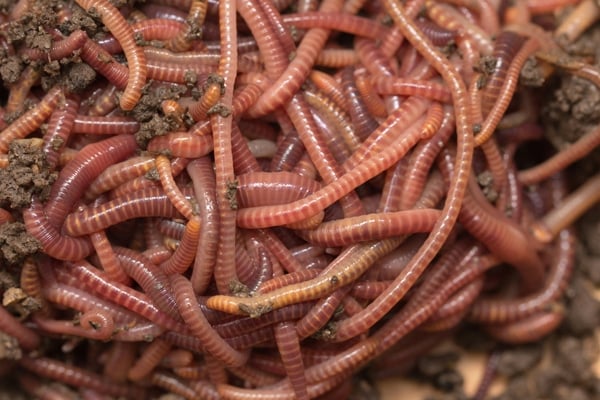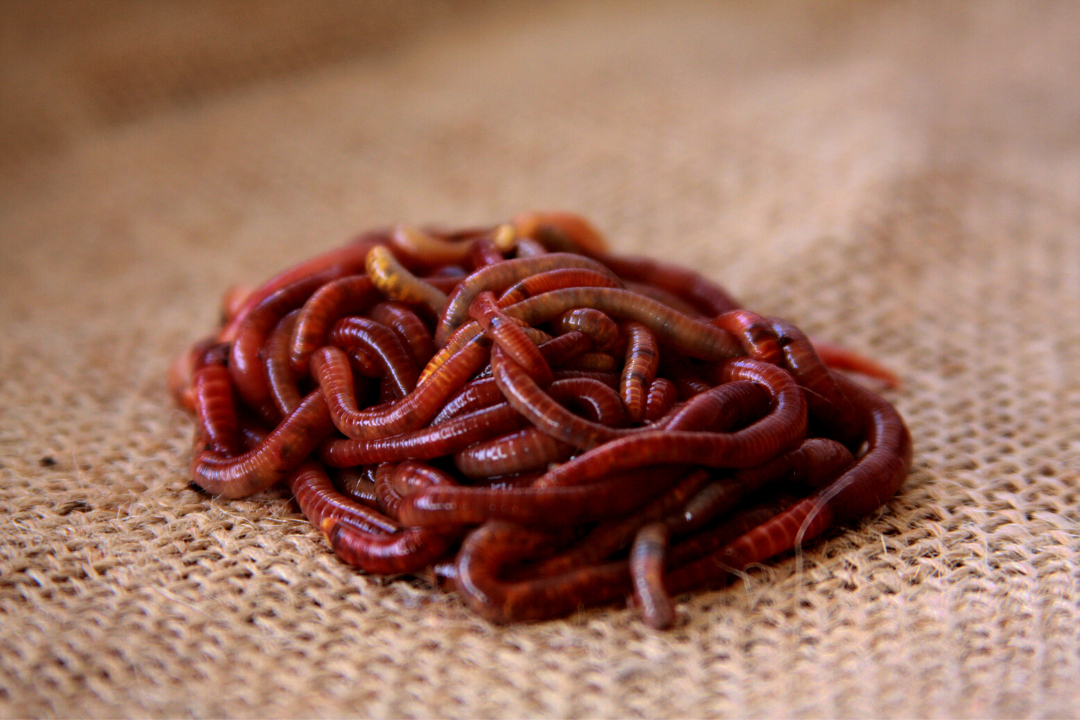Open the Keys of Red Wigglers: Your Guide to Composting Success
The combination of red wigglers right into composting practices offers a considerable opportunity for boosting soil health and advertising sustainability. These organisms are not merely reliable recyclers of natural waste; they offer a myriad of advantages that can transform yard administration. Recognizing their requirements and behaviors is essential for enhancing their capacity, from establishing a suitable worm container to feeding them the right products. As we check out the crucial elements of effective vermicomposting, one could ask yourself how these tiny creatures can cause an extra vibrant and productive yard ecosystem.

What Are Red Wigglers?
Native to North America, they are commonly discovered in rotting fallen leaves and compost heap, where they play a critical role in nutrient recycling. Their adaptation to residing in a wet, cardio setting enables them to eat large quantities of organic waste, simplifying right into nutrient-rich spreadings that enhance dirt health and wellness.
Red wigglers duplicate rapidly, with a solitary worm with the ability of generating several cocoons every week, each including several hatchlings. This fast reproduction price contributes to their performance in composting operations. They like temperatures in between 60 ° F and 80 ° F, and their activity level enhances dramatically within this range, more aiding in the disintegration process. Understanding the biology and actions of red wigglers is important for maximizing their capacity in composting applications.
Benefits of Using Red Wigglers
Utilizing the power of red wigglers in composting uses many benefits that enhance soil wellness and advertise lasting waste monitoring. These impressive organisms successfully damage down organic issue, changing cooking area scraps and yard waste right into nutrient-rich vermicompost. This completed product is remarkably valuable for plant development, as it enhances soil structure, enhances moisture retention, and enhances nutrient availability.

Establishing Your Worm Container
Producing a reliable worm container is an uncomplicated procedure that can considerably improve your composting initiatives. The initial action is selecting an ideal container. Worm containers can be made from plastic storage containers, wood boxes, or commercially readily available worm bins. Make sure the bin has adequate water drainage and air flow openings to maintain ideal wetness degrees and airflow.
Following, prepare the bedding material, which acts as the worms' environment. A mix of shredded paper, cardboard, and coconut coir functions well, supplying a comfy atmosphere for the worms. Purpose for a bedding depth of about 4-6 inches. Dampen the bed linens gently, guaranteeing it resembles a moist sponge without excess water merging near the bottom.

Feeding Your Red Wigglers
To make sure the health and efficiency of your red wigglers, it is crucial to provide them with a well balanced diet that fulfills their dietary needs. Red wigglers flourish on a diverse selection of organic materials, which not just provide necessary nutrients but likewise promote reliable composting.
Beginning by including kitchen scraps such as veggie peels, fruit cores, Clicking Here and coffee grounds. Avoid citrus fruits, onions, and garlic, as these can be damaging to worm health. In addition, present shredded paper, cardboard, and dry leaves to produce a well-aerated atmosphere.
Feeding regularity must be monitored; usually, worms can consume half their body weight in food weekly. It is critical to avoid overfeeding, as excess food can cause unpleasant smells and bring in parasites. A good method is to add food in tiny amounts, permitting worms to process it prior to presenting a lot more.
Preserving wetness levels is likewise vital; the bedding needs to perspire yet not soggy. Finally, make certain to consistently examine the temperature level and pH degrees of the bin to ensure an optimum atmosphere for your red wigglers, inevitably boosting their composting efficiency.
Harvesting and Making Use Of Compost
A successful composting procedure with red wigglers finishes in the abundant, dark garden compost understood as vermicompost, which can considerably improve soil wellness and plant development. Gathering this nutrient-dense material typically takes place every three to six months, depending on the size of your system and the quantity of natural matter being refined.
To gather, carefully different the garden compost from the worms and any kind of undecomposed materials. One effective technique involves moving the components of the bin to one side and adding fresh bedding and food to the void, motivating the worms to migrate. After a few days, the compost can be accumulated from the contrary side.
It is vital to utilize vermicompost properly to optimize its advantages. It can be utilized as a top clothing for yard beds, combined right into potting soil, or brewed right into a nutrient-rich liquid plant food understood as "worm tea." This application approach aids to provide crucial nutrients directly to plant origins, promoting healthier growth. By incorporating vermicompost right into your horticulture regimen, you not only reuse natural waste but additionally produce a growing ecosystem that sustains sustainable horticulture techniques.
Verdict
In summary, red wigglers serve as outstanding allies in composting efforts, changing organic waste into nutrient-rich vermicompost. By comprehending the ideal conditions for their habitat, feeding demands, and compost harvesting methods, garden enthusiasts can enhance soil health and promote plant vigor.
Comments on “Red Wiggler Express: Fresh Worms Delivered Right to Your Door”